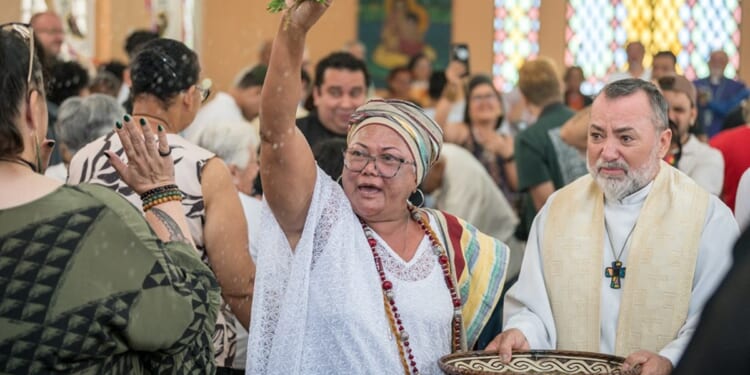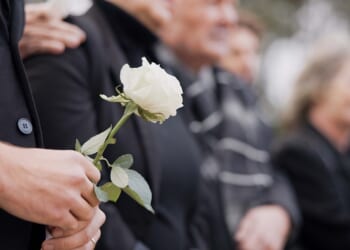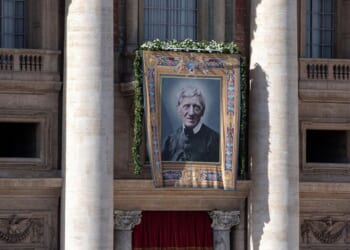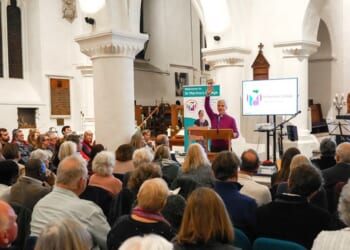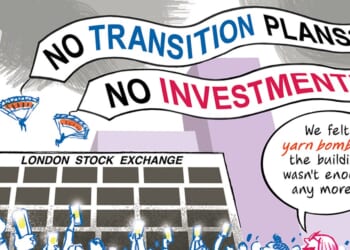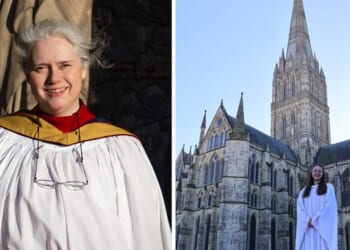THE Anglican Communion delegation to the COP30 climate talks in Belem, Brazil, “are here to bring a bit of soul, a bit of spirituality, a bit of heart”, one of the group, the Revd Ray Minniecon, an aboriginal pastor with roots in the Kabi Kabi and Gurang-Gurang tribes of Queensland, Australia, has said.
As the talks enter their second and final week, there remains a tension between the slow progress within the formal negotiating halls, and the calls for urgency from communities experiencing the effects of climate change first-hand. Church leaders and Indigenous groups are pressing developed countries to agree on the funding needed to accelerate the energy transition from fossil fuels to renewables.
“The COP is all a bit too academic,” Mr Minniecon said. “As Indigenous, and as Christians, we know what the soul is, and that’s what’s missing here.”
In contrast to the more technocratic elements of COP30, on Saturday, 50,000 people — including many Indigenous people from the Amazon — took part in a vast “people’s climate march” on the streets of Belém.
Among them was Mariana Menezes, the co-founder of Parents For Future Brazil, whose family was caught up in the devastating floods in the southern Brazilian state of Rio Grande do Sul last year (News, 10 May 2024).
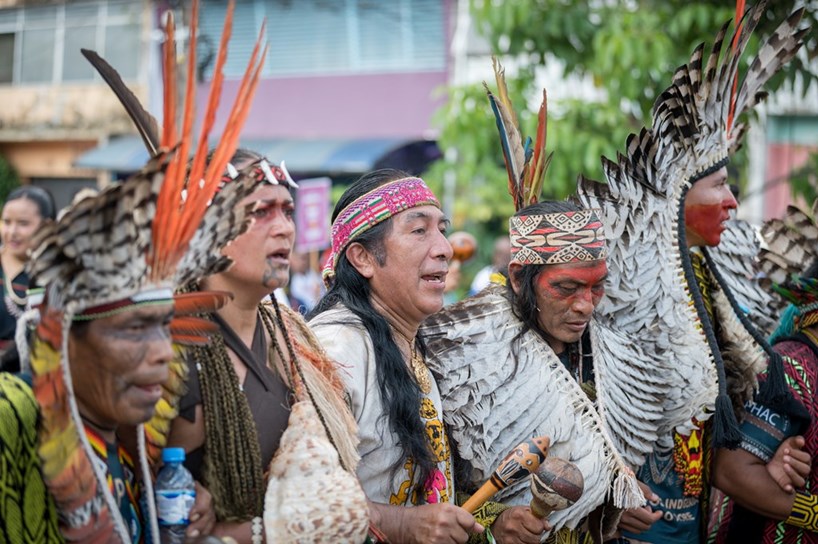 Albin HillertIndigenous people are pictured among tens of thousands gathered in downtown Belém, Brazil, for a People’s March for Climate Justice, held in connection with the UN climate summit COP30
Albin HillertIndigenous people are pictured among tens of thousands gathered in downtown Belém, Brazil, for a People’s March for Climate Justice, held in connection with the UN climate summit COP30
“My children, just entering adolescence, have already experienced a devastating flood that left us stranded for days and away from home for months,” she said. “How many other climate tragedies will they have to face throughout their lives?
“While we should be preparing for this, we see world leaders denying reality and making plans to expand fossil fuels. These people, who once enjoyed full lives with unforgettable summers and long walks outdoors in their youth, are condemning future generations to lives of pollution and disasters.
“We must come together to speak on behalf of those who have no voice — not only our children, but also those yet to be born, the most vulnerable, the animals, and all forms of life on earth.”
One of the divides at the COP is between some wealthier countries, who are demanding that poorer nations accelerate carbon emission reductions, and poorer countries who say that they do not have the funding to do this.
Under the terms of the Paris Agreement, signed ten years ago, developed nations have been given the responsibility of delivering that finance because of their disproportionate contribution to carbon emissions. So far, however, the wealthier nations have largely offered only loans.
Evans Njewa, from Malawi, who chairs the Least Developed Countries Group at the summit, said: “Last year, wealthy countries told us a new era of climate finance was beginning. Yet after a year of devastating climate impacts that have destroyed livelihoods, deepened food insecurity, and left Least Developed Countries with staggering bills, we are now told the wallets are empty. We did not start this fire, but we are being handed the bill. The wealthy countries’ bill. It’s time to pay it.”
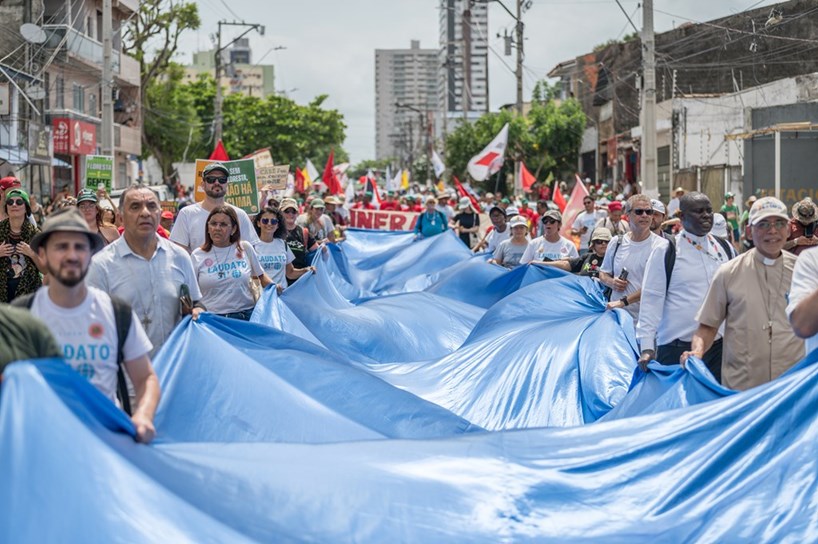 Albin HillertMembers of the Laudato Sí movement unfurl a “Blue River of Hope” as tens of thousands gather in downtown Belém, Brazil, for a People’s March for Climate Justice, held in connection with the UN climate summit COP30
Albin HillertMembers of the Laudato Sí movement unfurl a “Blue River of Hope” as tens of thousands gather in downtown Belém, Brazil, for a People’s March for Climate Justice, held in connection with the UN climate summit COP30
Observers of the talks suggest that finance — both to fund the energy transition but also to support vulnerable countries to adapt to the effects of climate change — is the key to unlock progress.
Among them is a Tearfund ambassador, Laura Anderson, who said: “As COP30 enters its final days, the pressure is on wealthy governments to pledge and deliver the financial support so desperately needed by communities to adapt to the impacts of the climate crisis. These communities must be at the heart of any agreements as the conference reaches its conclusion.”
Mr Minniecon, who was given the Hubert Walter Award for Reconciliation and Interfaith Cooperation by the then Archbishop of Canterbury, Justin Welby, in 2022, said that the words of John 3.16 summed up why he continued to advocate for action to stop the climate crisis. “For God so loved the world. That means all of creation — the people, the cosmos, the lands, the oceans,” he said. “This is what Jesus gave his life for. That’s why this is so important.”
Joe Ware is senior climate journalist at Christian Aid.

